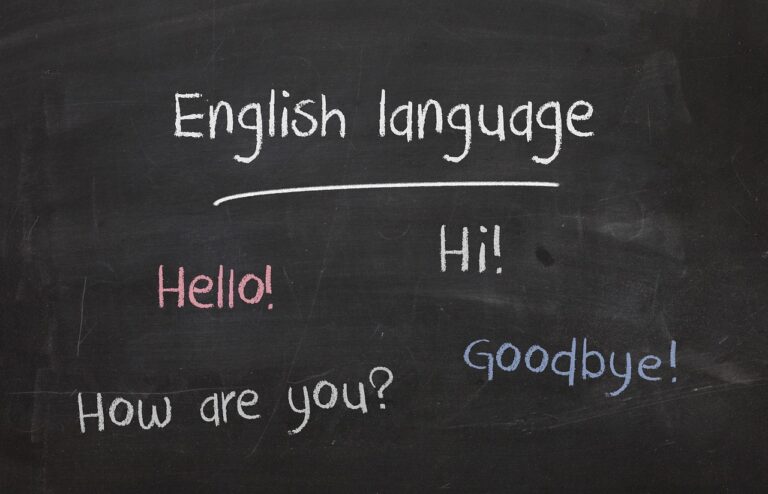Promoting Global Competence through EdTech-Enabled International Humanities Exchanges
99exch, laser247 club, world777 contact number:Promoting Global Competence through EdTech-Enabled International Humanities Exchanges
In today’s interconnected world, promoting global competence has become more important than ever. As technology continues to advance, educators have a unique opportunity to leverage EdTech tools to facilitate international humanities exchanges and enhance students’ understanding of different cultures, perspectives, and ways of life. These exchanges not only foster empathy, respect, and open-mindedness but also equip students with the skills and knowledge needed to thrive in an increasingly globalized society.
The use of EdTech in international humanities exchanges allows students to engage with their peers from around the world in real-time, breaking down geographical barriers and fostering cross-cultural communication. By participating in virtual exchange programs, students can collaborate on projects, discuss current events, and share their unique perspectives on various topics. This not only enriches their learning experience but also helps them develop a deeper understanding and appreciation of different cultures and viewpoints.
Furthermore, EdTech-enabled international humanities exchanges provide students with the opportunity to develop crucial 21st-century skills, such as critical thinking, communication, collaboration, and cultural competence. Through these exchanges, students learn to navigate cultural differences, communicate effectively with people from diverse backgrounds, and work towards common goals despite language barriers or other challenges. These skills are essential for success in today’s globalized world, where the ability to work across cultures and borders is increasingly valued.
By promoting global competence through EdTech-enabled international humanities exchanges, educators can also help students develop a sense of global citizenship and responsibility. Through these exchanges, students learn to think beyond their own communities and consider the impact of their actions on a global scale. They become more aware of global issues and develop a sense of empathy and solidarity with people from different parts of the world. This, in turn, fosters a sense of interconnectedness and shared humanity, which is essential for building a more peaceful and sustainable world.
In conclusion, EdTech-enabled international humanities exchanges offer a valuable opportunity for promoting global competence and fostering cross-cultural understanding among students. By leveraging technology to connect students from different parts of the world, educators can help cultivate the skills, attitudes, and knowledge needed to thrive in an increasingly interconnected and diverse world. Through these exchanges, students learn to appreciate diversity, communicate effectively across cultures, and work collaboratively towards common goals. Ultimately, promoting global competence through EdTech-enabled international humanities exchanges is essential for preparing students to become responsible, empathetic, and culturally competent global citizens.
—
The Importance of Global Competence
Developing a Global Mindset
Building Cross-Cultural Communication Skills
Fostering Empathy and Respect
Enhancing Cultural Awareness
Nurturing Global Citizenship
FAQs
Q: What is global competence?
A: Global competence refers to the knowledge, skills, attitudes, and values needed to navigate and thrive in a globalized world. It includes multicultural awareness, cross-cultural communication, empathy, respect for diversity, and a sense of global citizenship.
Q: How can EdTech tools enhance international humanities exchanges?
A: EdTech tools can facilitate real-time communication, collaboration, and information sharing between students from different parts of the world. They can also provide access to diverse cultural resources, virtual tours, and interactive learning activities that enhance students’ understanding of different cultures and perspectives.
Q: What are the benefits of promoting global competence through international exchanges?
A: Promoting global competence through international exchanges helps students develop essential 21st-century skills, such as critical thinking, communication, collaboration, and cultural competence. It also fosters empathy, respect, and open-mindedness, while nurturing a sense of global citizenship and responsibility.
Q: How can educators incorporate EdTech-enabled international humanities exchanges into their classrooms?
A: Educators can leverage online platforms, video conferencing tools, virtual exchange programs, and digital resources to connect their students with peers from different parts of the world. They can design collaborative projects, cultural exchanges, and virtual discussions that promote cross-cultural understanding and global competence.
Q: What are some strategies for assessing global competence in students?
A: Educators can assess students’ global competence through performance tasks, projects, presentations, cultural reflections, and self-assessments. They can also use rubrics, checklists, and peer evaluations to measure students’ ability to communicate effectively across cultures, demonstrate empathy and respect, and work collaboratively towards common goals.
In conclusion, promoting global competence through EdTech-enabled international humanities exchanges is crucial for preparing students to thrive in a diverse, interconnected world. By fostering cross-cultural understanding, empathy, and respect, educators can help students develop the skills, attitudes, and knowledge needed to become responsible, empathetic, and culturally competent global citizens. Through these exchanges, students learn to appreciate diversity, communicate effectively across cultures, and work collaboratively towards common goals, ultimately contributing to a more peaceful and sustainable world.






